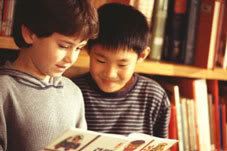
Forward
The reality that more impressions are received from reading than from all other sources combined, is more relevant to me today, than it was in my younger years. I obviously dreamed or thought that all of my fellow human beings also read on a regular basis, that is until a National Endowment for the Arts Survey in 2004 was revisited in light of recent studies which indicate a national decline in math skills, the inability to find well known counties on a map of the world, what seems to be a general decline of ethics or morality in business and with respect to our elderly, defenseless children and so forth.
NEA Survey
While the reasons for a decline in reading are not spelled out in the NEA study and we are left to ponder this decline which is across gender, ethnicity, age and education lines, we can none the less evaluate the decline based upon our own experience by exploring some of the major obstacles to reading on a regular or consistent basis.
Obstacles To Regular or Consistent Reading
Not Reading To Someone
Few pictures will invoke fonder memories of reading or being read too, than a picture of a child in a grandfather's lap, looking up as if to grasp and understand every word uttered, while the grandfather smiles as he reads, in enjoyment a story or nursery rhyme which was read to him as a child, by an adult.
The value of reading to our children was called into question by Jean Piaget, whose research showed children are not ready to learn until the age of six or seven; teaching styles were thought to be the problem and rote was replaced by phonics; brain science was becoming of age and baby speak or talk gained greater acceptance as fact rather than fancy; Sesame Street came to television and our very young associated a visual presentation to learning subject or object; and in our quest for material objects and just getting by, our children were literally forced to find books as a companion to replace the lack of parenting.
While we can either agree or disagree with any or all of what has been presented so far, none of us would discount a value of Lent, which to we Catholics is giving up something like cigarettes, but apply this objective in reverse, by doing something of value we do not do at present, like read. To ourselves, to our children, to an audience and in the process develop diction, self-confidence and a feeling of self worth as a parent and world citizen.
Lack of Oral Tradition
Another picture, which comes to our minds at birthdays and other occasions, is that of a loved one who took the time with children and other adults to recall a mind-boggling story, which we can remember even in our later years. Remember this dear reader. Prior to 900 A.D. the world read aloud until Seymour Simon, the scribe made a discovery, white spaces; Gutenberg elevated manuscript culture to an art form; Sputnik gave us ecology which became an art form; and electronic media forged ahead in western culture, while oral traditions dominate eastern culture, not because books, television or electronic media are not readily available and every society realizes the value of listening to an oral presentation, coupled with visually following along, while reinforcing this process with recital. So why not eliminate an obstacle to reading by revisiting or renewal of oral traditions. Just remember this picture of your grandfather with you sitting on his knee long after he has left mother earth and do what your heart says for you to do.
Drudgery Not Pleasure
A man in the mid 1600s named Antonio di Marco Magliabechi confessed that he could read, comprehend and memorize entire volumes at a rapid rate, yet when we were reading Dick and Jane in the first grade it took hours, the reading list in high school and college took weeks to complete, leaving very little time for actual study or going to the movie show and then we realized the problem. We just read too slowly, did not remember very much of what we had read, what we did remember was not retained from reading until test time. Reading became drudgery not a pleasure, until Evelyn Wood burst upon the scene with a few discoveries, which firmly established speed-reading. Reading at last became a pleasure. While our readers may agree or disagree with what has been written, is there any one of us who would not gladly trade our current reading or not reading habit for one in which we can triple reading speed with the same comprehension or better?
Conclusions
While there are many more obstacles to our friend, reading, this short list is at least an excellent start. Now having said that and written this paper, I must contemplate the reaction to having a published something to read, which just may benefit non- readers who have not been exposed to the value of reading on a regular and continuing basis. Perhaps you dear reader could help by engaging in our oral traditions by telling someone about this article, and then let them read the article and both of you reinforcing by discussion what has been learned. Who really knows, if you give a child or adult the gift of reading, the gift may be the greatest gift given or received. Now let your mind wander and ponder the how and why.
By Denny Lancaster



0 comments:
Post a Comment